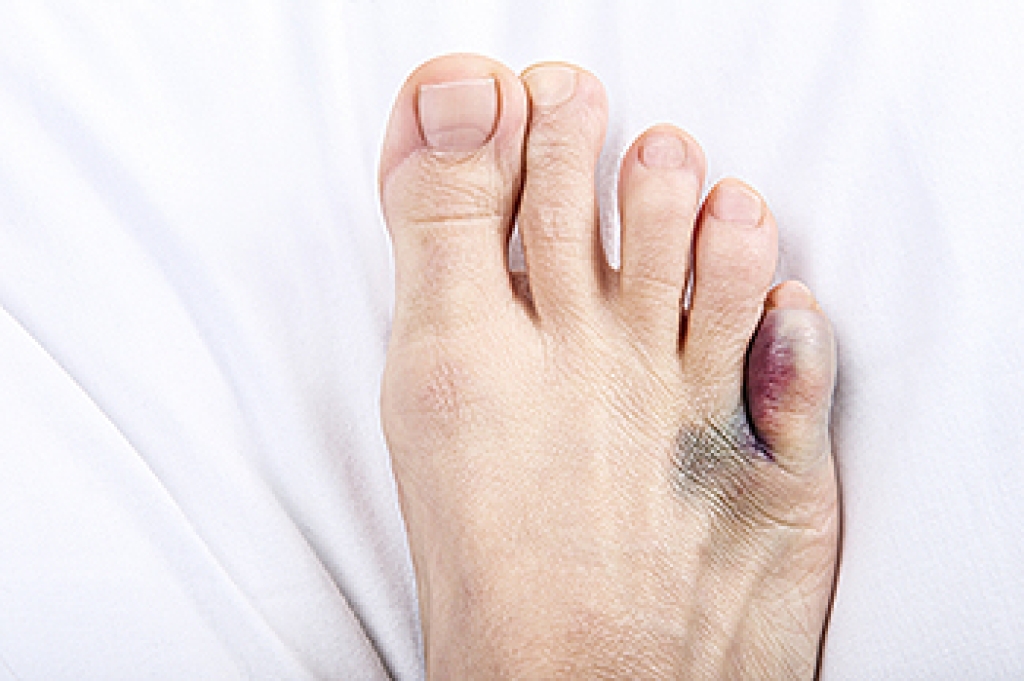
A painful pinky toe can make every step feel uncomfortable, and the causes are often more varied than expected. Wearing tight shoes that squeeze the toes can lead to irritation, corns, or calluses along the sides of the toe. Some people develop a small bony bump that rubs against footwear, while others may experience pain from a minor fracture or a soft tissue injury after stubbing the toe. The pinky toe can also shift inward over time, creating pressure points and swelling. Although gentle padding and wider shoes may ease early symptoms, pain that persists or worsens should not be ignored. A podiatrist can examine the toe, identify the exact source of discomfort, and recommend treatments that reduce irritation and prevent further problems. If your pinky toe continues to hurt or makes daily walking difficult, it is suggested that you see a podiatrist for proper evaluation and appropriate care.
Toe pain can disrupt your daily activities. If you have any concerns, contact Scott Amoss, DPM of Advanced Foot & Ankle Specialists. our doctor can provide the care you need to keep you pain-free and on your feet.
What Causes Toe Pain?
Most severe toe pain is caused due to a sports injury, trauma from dropping something heavy on the toe, or bumping into something rigid. Other problems can develop over time for various reasons.
Toe pain can be caused by one or more ailments. The most common include:
- Trauma
- Sports injury
- Wearing shoes that are too tight
- Arthritis
- Gout
- Corns and calluses
- Hammertoe
- Bunions
- Blisters
- Ingrown toenails
- Sprains
- Fractures (broken bones)
- Dislocations
When to See a Podiatrist
- Severe pain
- Persistent pain that lasts more than a week
- Signs of infection
- Continued swelling
- Pain that prevents walking
Diagnosis
In many cases the cause of toe pain is obvious, but in others, a podiatrist may want to use more advanced methods to determine the problem. These can range from simple visual inspections and sensation tests to X-rays and MRI scans. Prior medical history, family medical history, and any recent physical traumatic events will all be taken into consideration for a proper diagnosis.
Treatment
Treatments for toe pain and injuries vary and may include shoe inserts, padding, taping, medicines, injections, and in some cases, surgery. If you believe that you have broken a toe, please see a podiatrist as soon as possible.
If you have any questions please contact our offices located in Whiting and Toms River, NJ . We offer the newest diagnostic and treatment technologies for all your foot and ankle needs.




